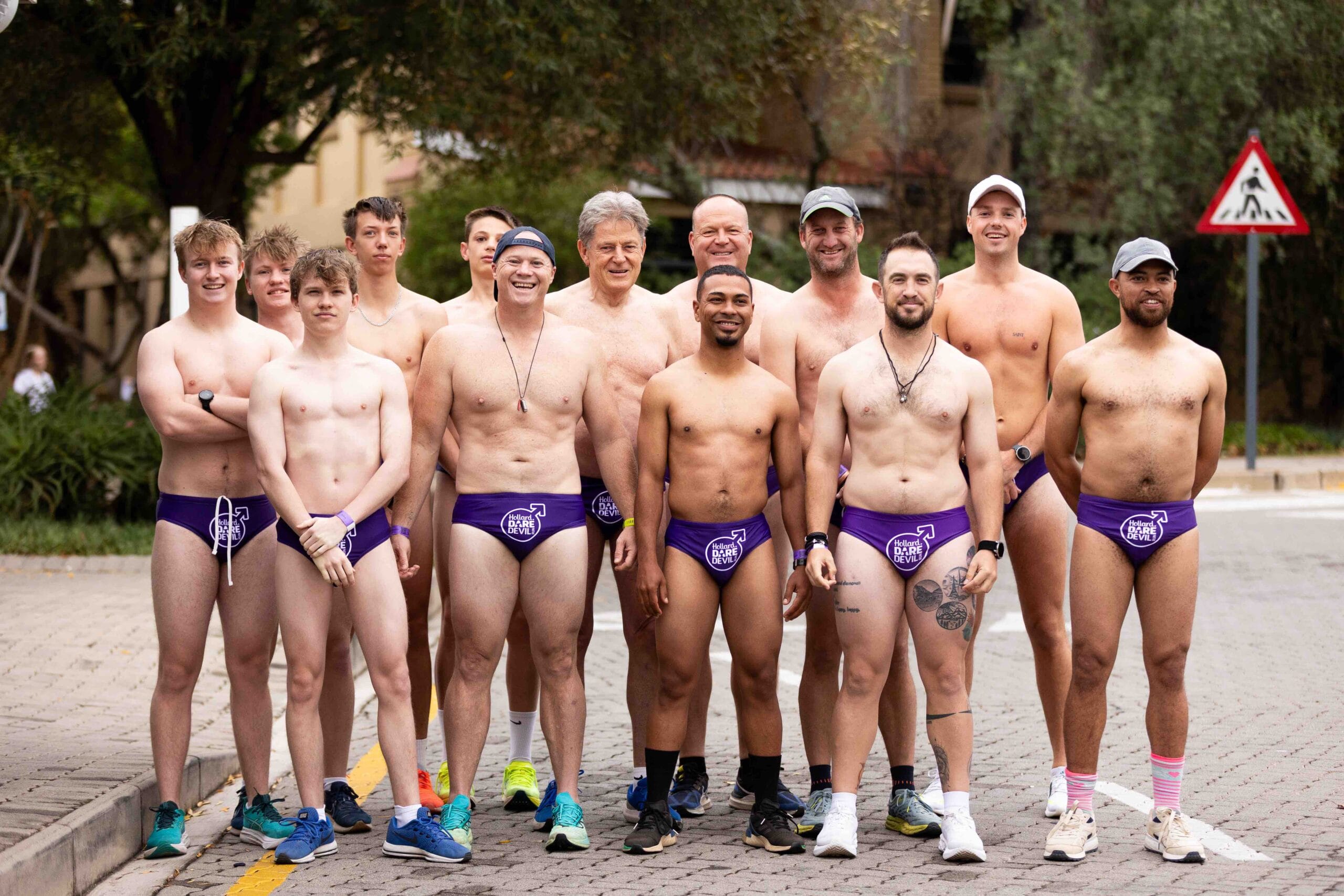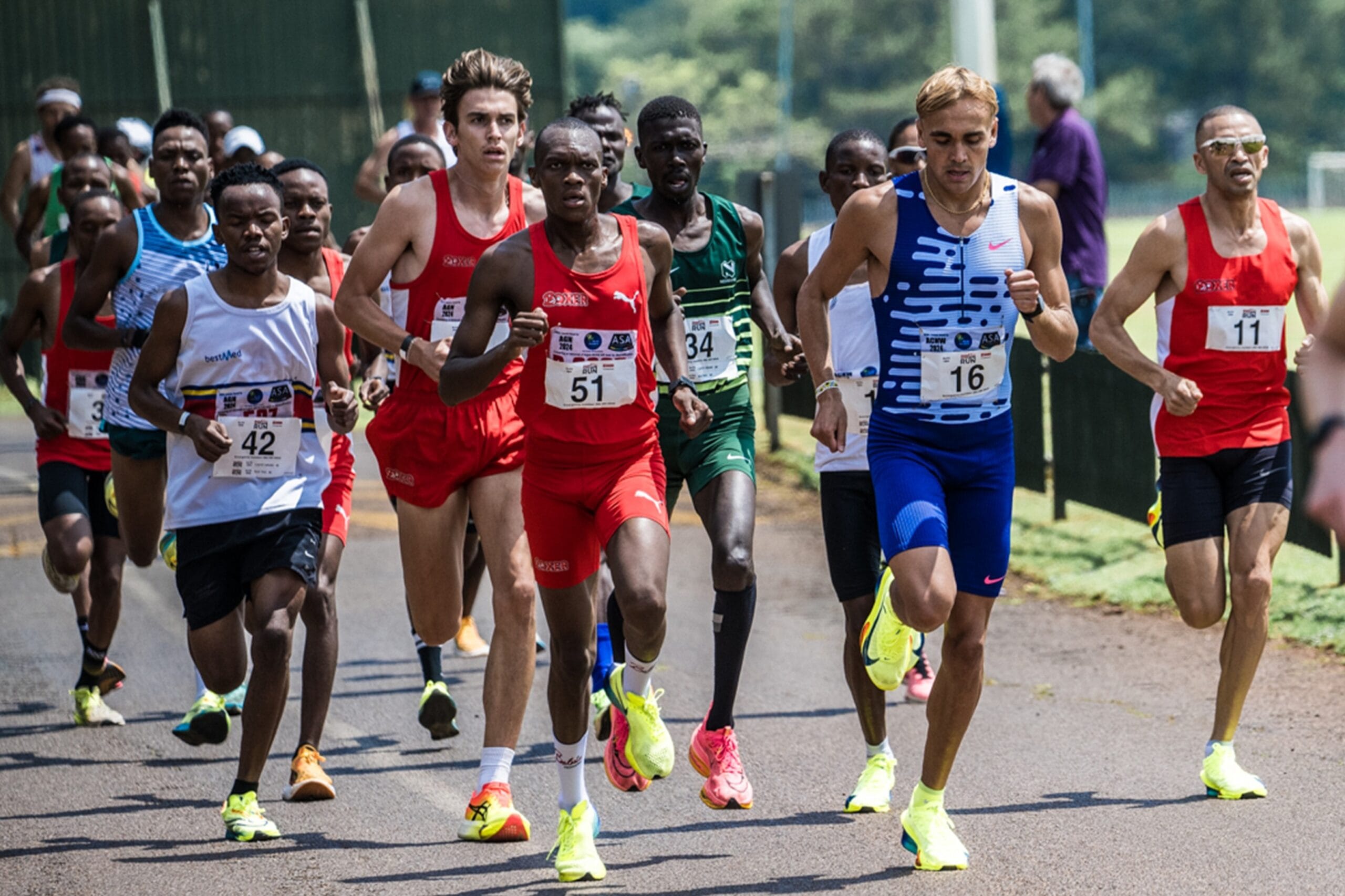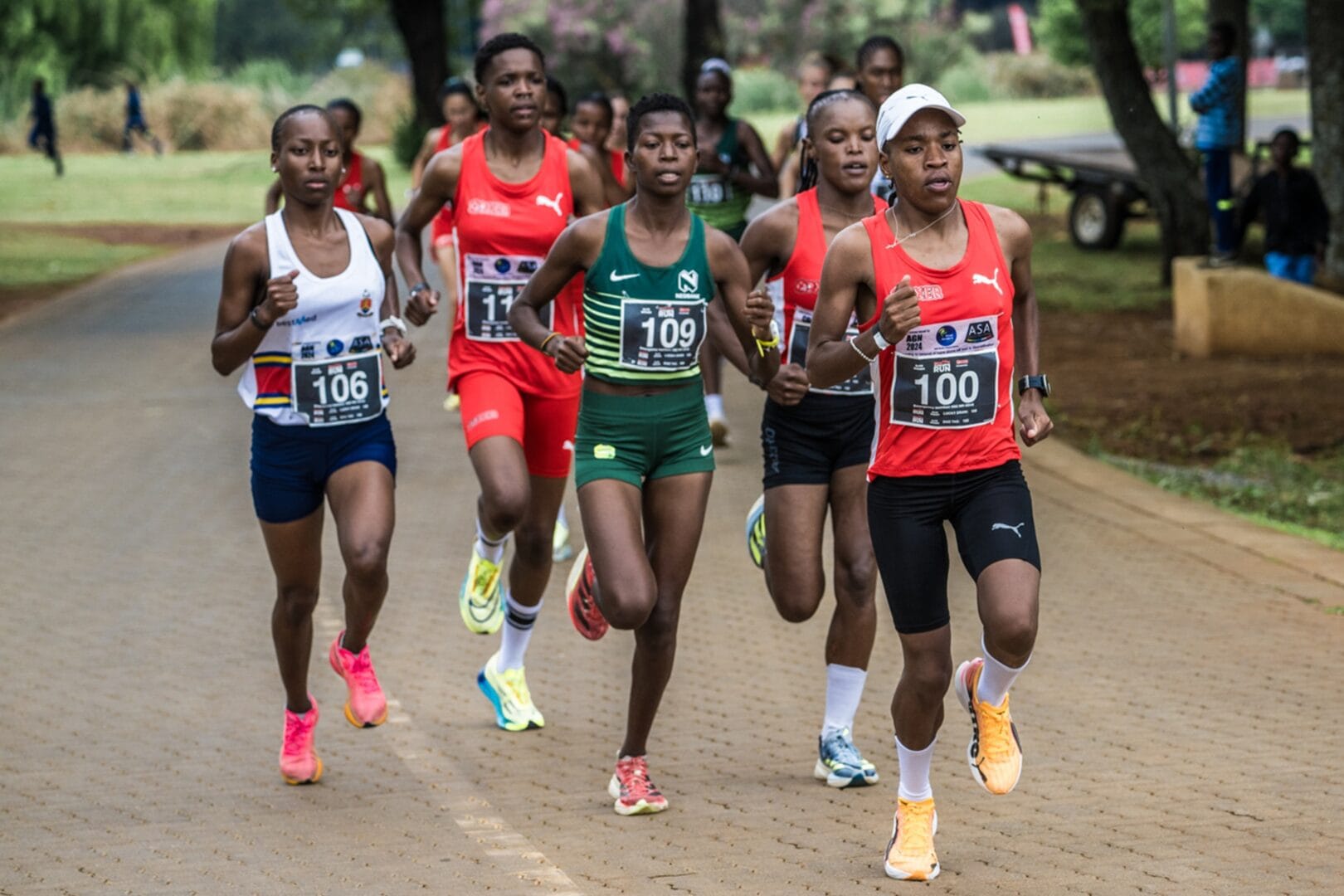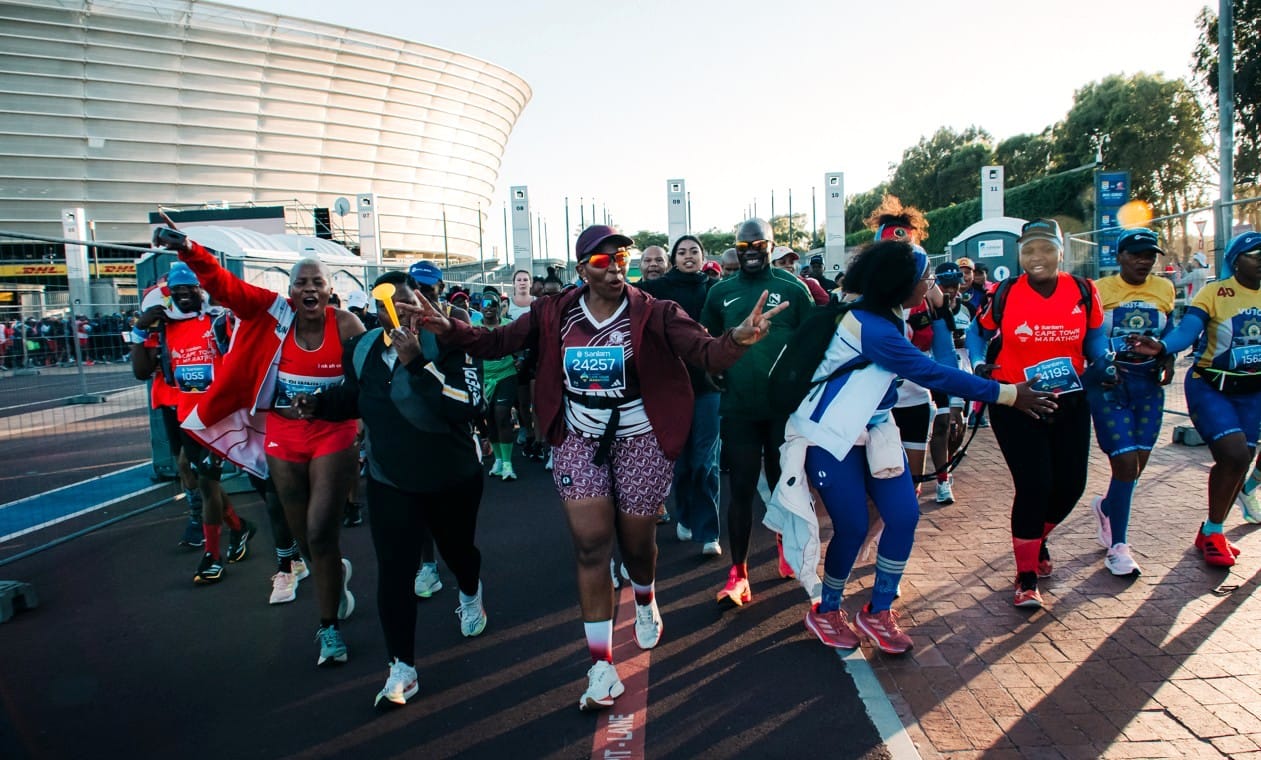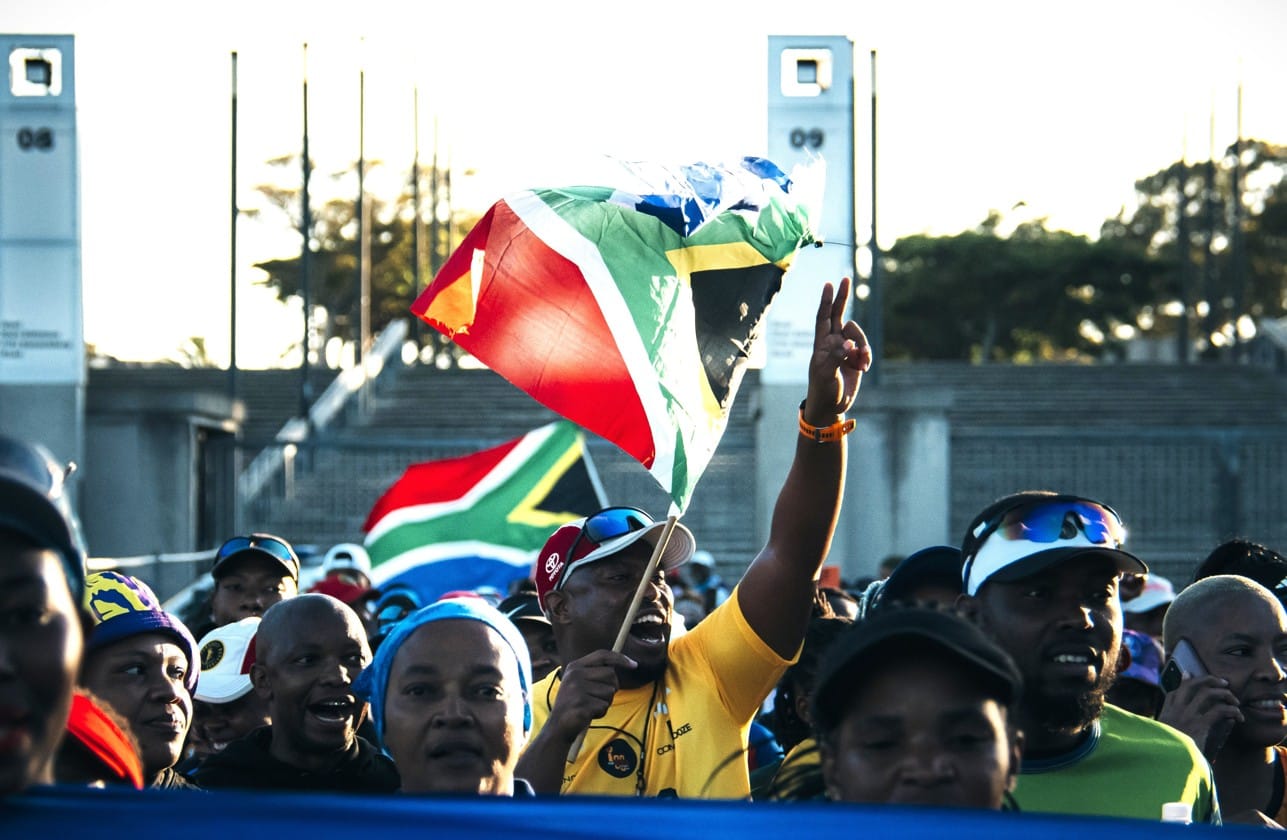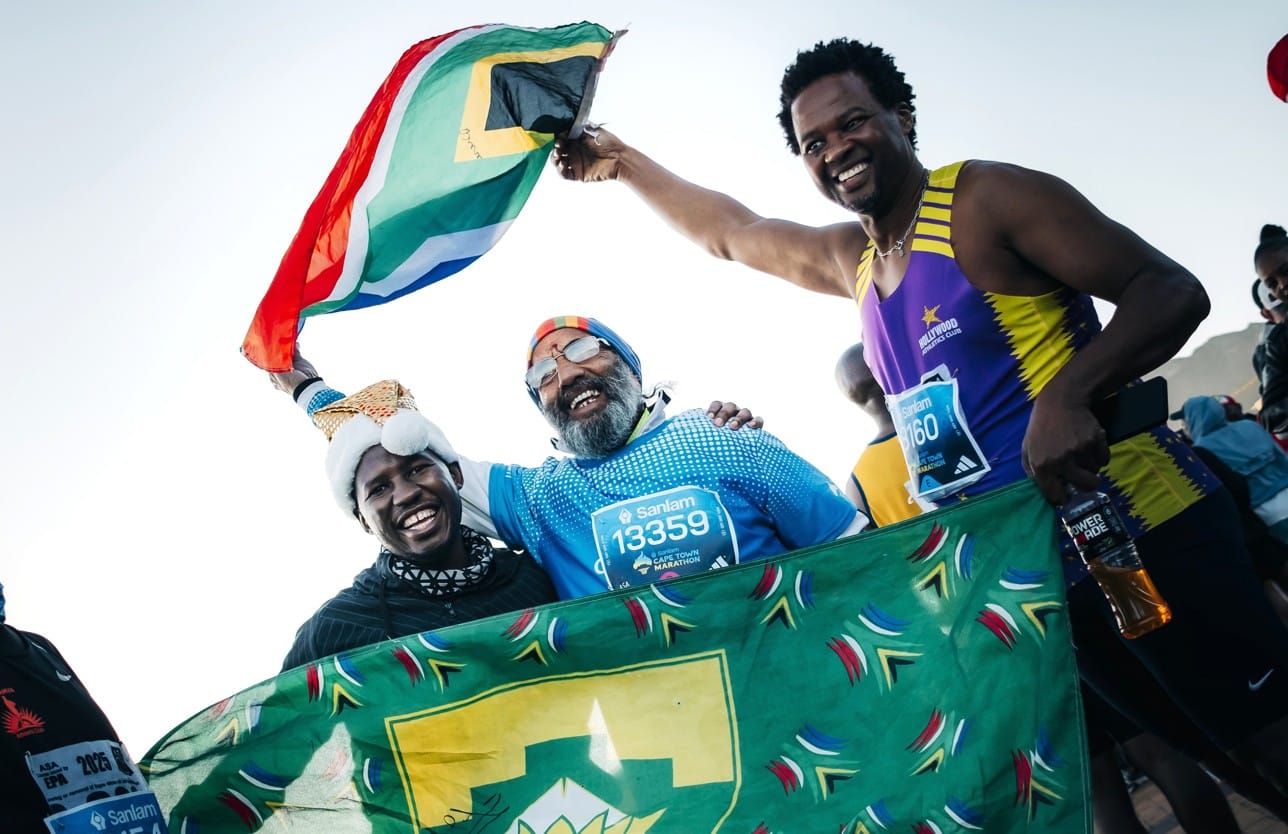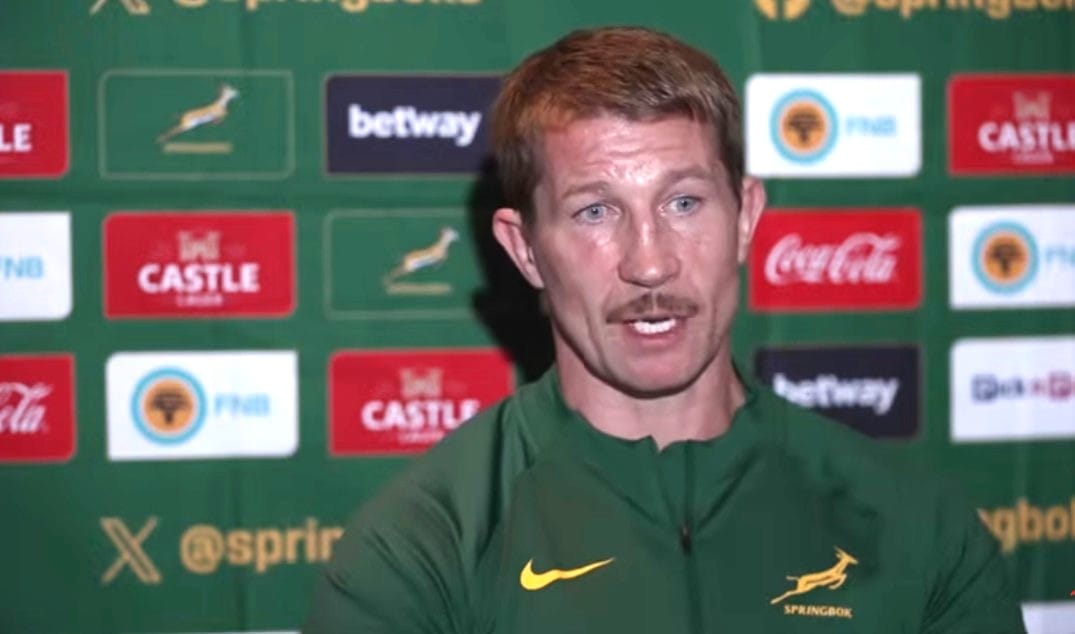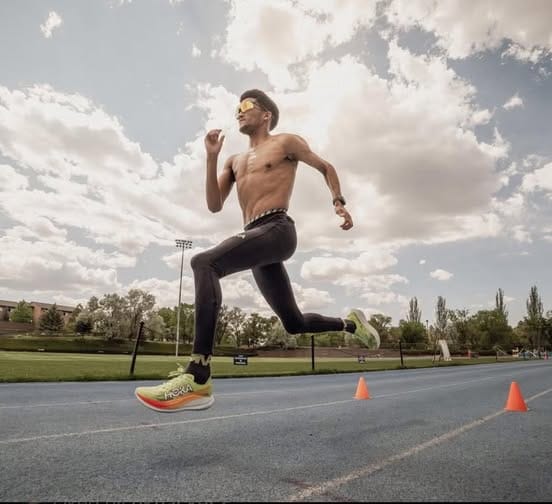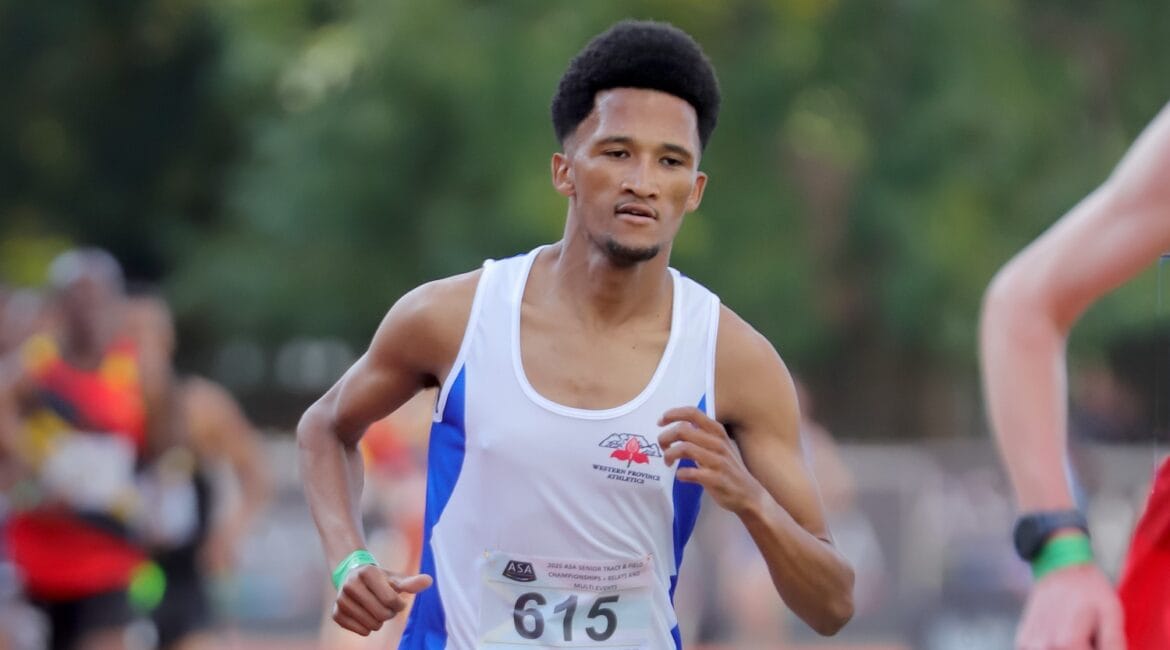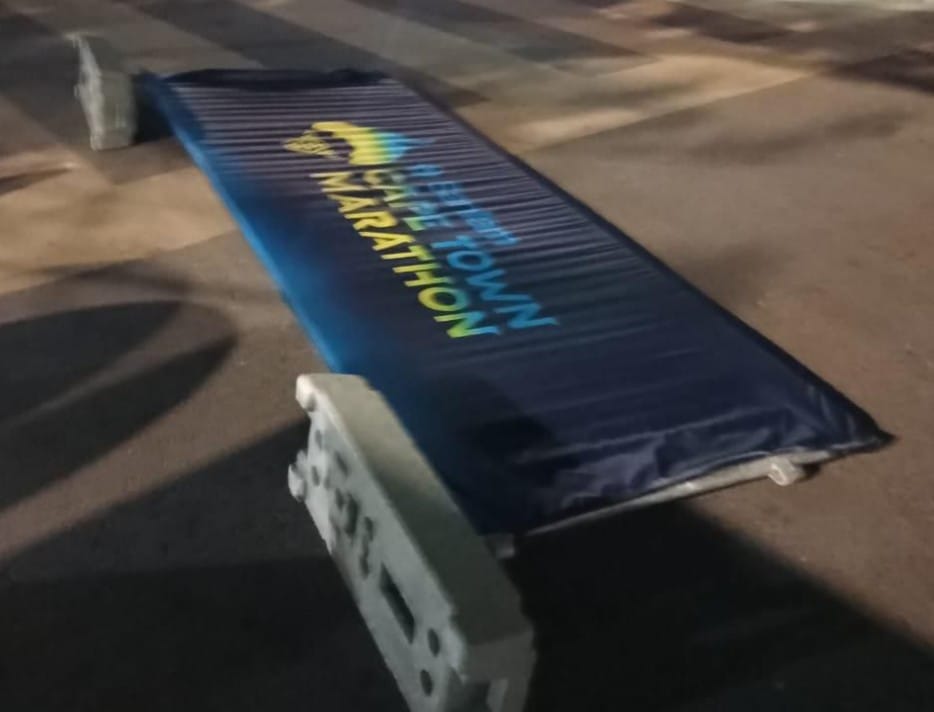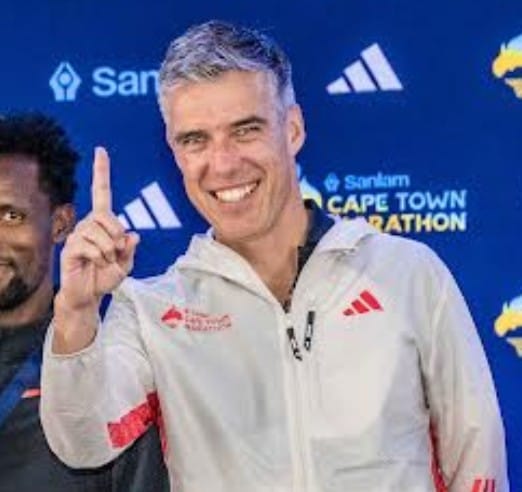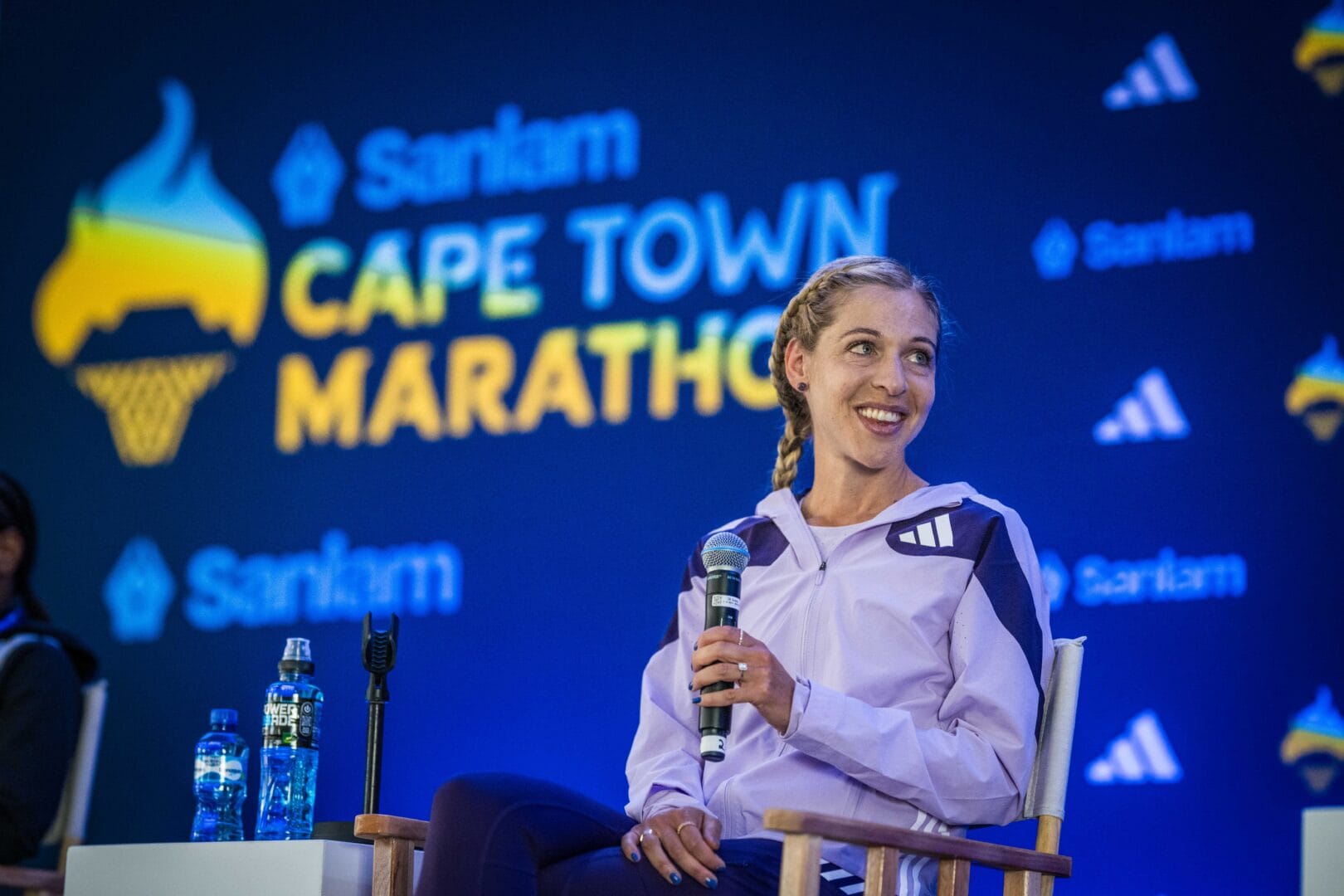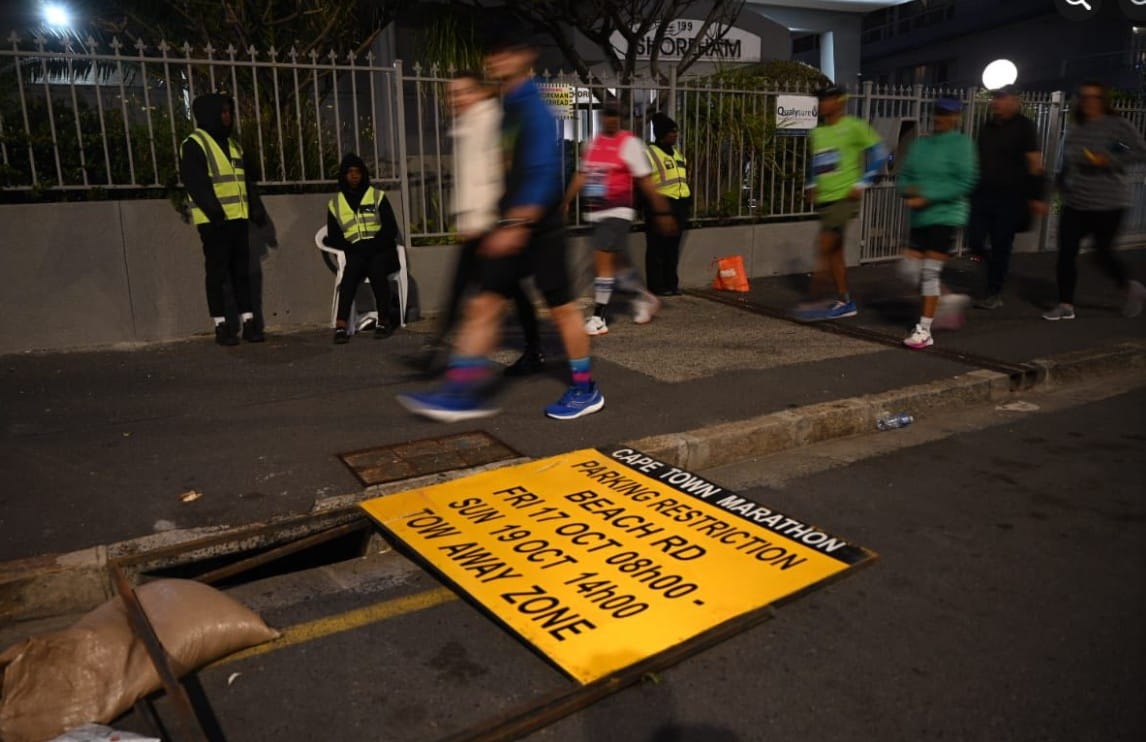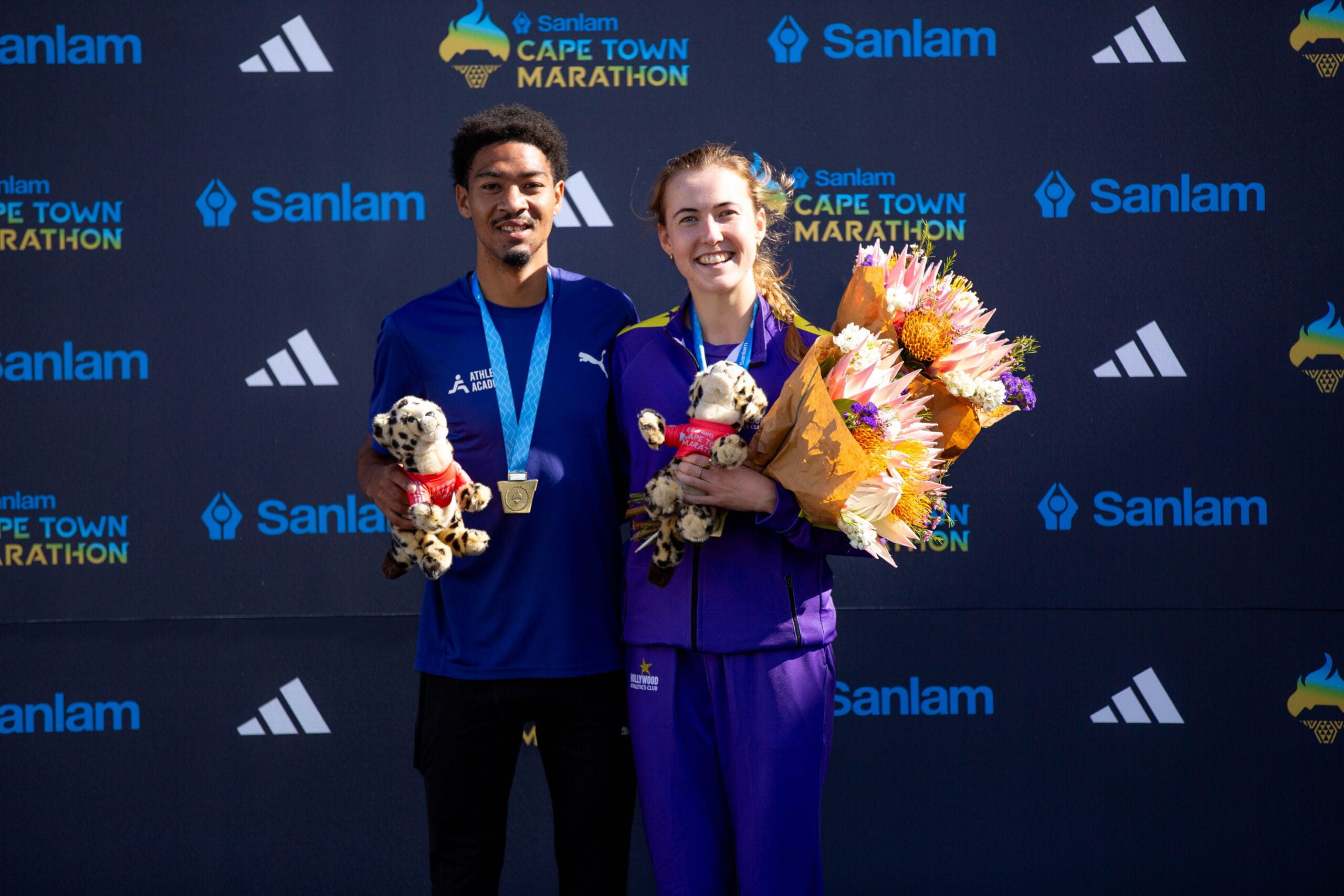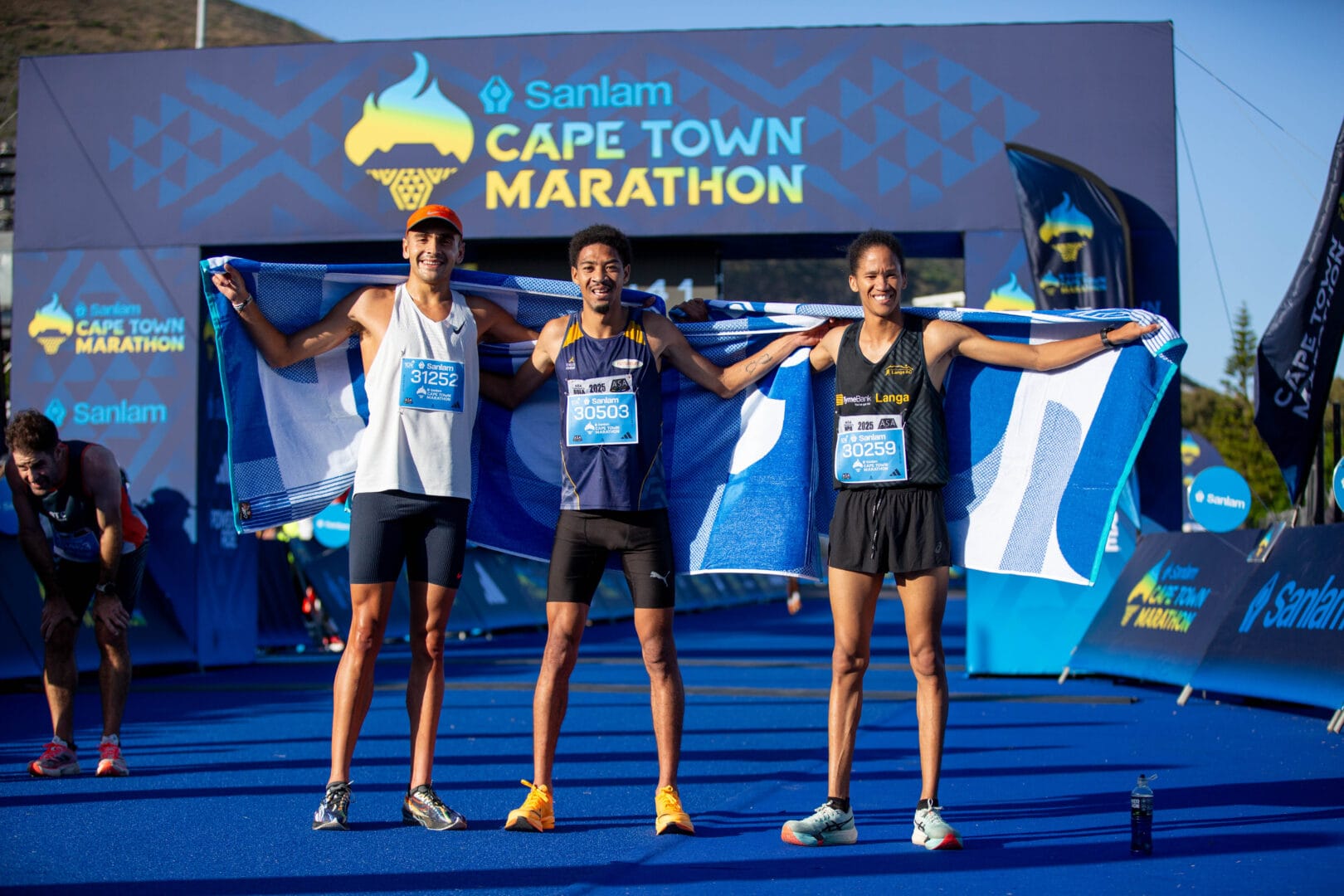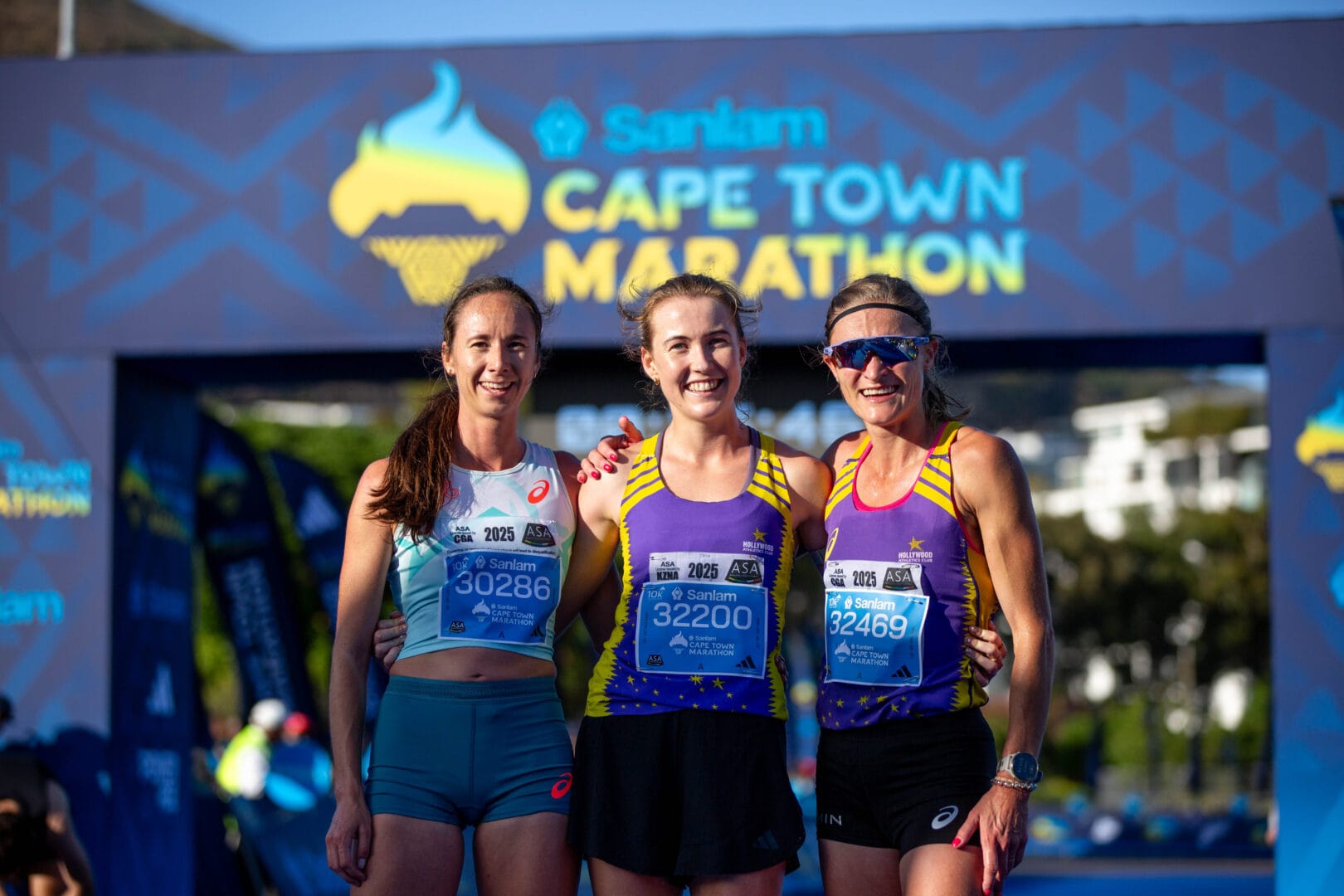Neighbourhoods, office parks, sports clubs and schools around South Africa turned a vibrant shade of purple today, as thousands of daredevils took to the streets to raise awareness about prostate and testicular cancer.
For the 16th year, the Hollard Daredevil Run has once again made its mark, uniting men from every province in the fight against male cancers. Corporates supported the event by sending their staff running teams in their numbers and even the jacaranda trees played along by providing shade plus purple love to the Daredevils in Johannesburg and Pretoria.
As early as 05:00 this morning, runners in Ermelo, Bethlehem and Durban North set the scene for an unforgettable day of purpose and awareness. By 06:00, the Western Cape locations as well as the Eastern Cape’s Hobie Beach in Gqeberha, all came alive with a sea of purple Speedos. Next was a team of 200 in Kimberley and another 200 in Mbombela, where Nelspruit Marathon Club, Legogote Villagers Club, City of Mbombela Marathon Club and Pumas Rugby Development joined forces.
What followed were runs across the country: from Khayelitsha, Mahikeng and Kimberley to Pretoria, Potchefstroom as well as Plettenburg Bay.
These hundreds of regional runs today have demonstrated that wherever the Hollard Daredevil Run goes, its message of early detection, life-saving screenings and raising awareness of prostate and testicular cancers resonates nationwide.
Thousands of men also gathered at Zoo Lake in Johannesburg, where the main run takes place every year. Present at this event were representatives from the Prostate Cancer Foundation and the Cancer Association of South Africa (CANSA), long-standing partners of the Daredevil Run and beneficiaries of all the funds raised, which goes towards increasing awareness and support as well as testing in under-resourced areas.
“Last year alone, we conducted 1 000 PSA tests, trained 649 healthcare professionals and ran outreach programmes across rural and underserved areas. This funding is truly life-saving, allowing us to educate, screen and support men, as well as their families, to take control of their health” says Lorraine Govender, National Manager: Health Programmes at CANSA.
“The iconic purple Daredevil Speedo has become a symbol of hope. We couldn’t be prouder of the impact it has in raising awareness, encouraging early detection and ultimately saving lives across South Africa,” says Andrew Oberholzer, CEO of the Prostate Cancer Foundation of South Africa.
“At Hollard, we believe that by raising awareness, we can encourage early detection and make a real difference in saving lives,” says Hazel Chimhandamba, Group Chief Marketing Officer at Hollard.
“Understanding the symptoms and available tests as well as having access to testing facilities is crucial in the fight against prostrate and testicular cancers, which is why the Daredevil Run is such an effective platform: It gets people talking about men’s health in a fun, engaging and approachable way. We are truly humbled by the support received and the incredible numbers of participants who joined the cause.”
In South Africa, the lifetime risk of developing testicular cancer in men is approximately 1 in 1,750 and it remains one of the most common cancers affecting men between the ages of 15 and 49. Prostate cancer claims the lives of thousands of South African men each year. International data shows that approximately 1 in 4 black men will be diagnosed with prostate cancer versus 1 in 8 white males. A simple blood test can measure PSA levels, which can help detect prostate cancer early. For both prostate and testicular cancer are highly treatable when caught early.
With R1 million raised in 2024, Hollard is setting its sights on doubling the total this year. Those wanting to play their part can donate on the Hollard Daredevil BackABuddy platform and help save the lives of more men in South Africa. Hollard’s corporate partners like iTOO and C&R were amongst the first to pledge donations towards the Daredevil Run fund.
“Together we can make a real difference and drive meaningful impact. Thank you to all the Daredevils that set out in their Speedos today. See you next year and bring a friend”, says Chimhandamba.
About Hollard
The Hollard Insurance Group (“Hollard”) is South Africa’s largest privately owned insurance group. Hollard provides short-term, life insurance and investment products to a diverse customer base. Hollard through Hollard International has access to 10 markets across the continent namely South Africa, Botswana, Ghana, Lesotho, Mozambique, Namibia, Zambia, Kenya, Tanzania and Uganda.




